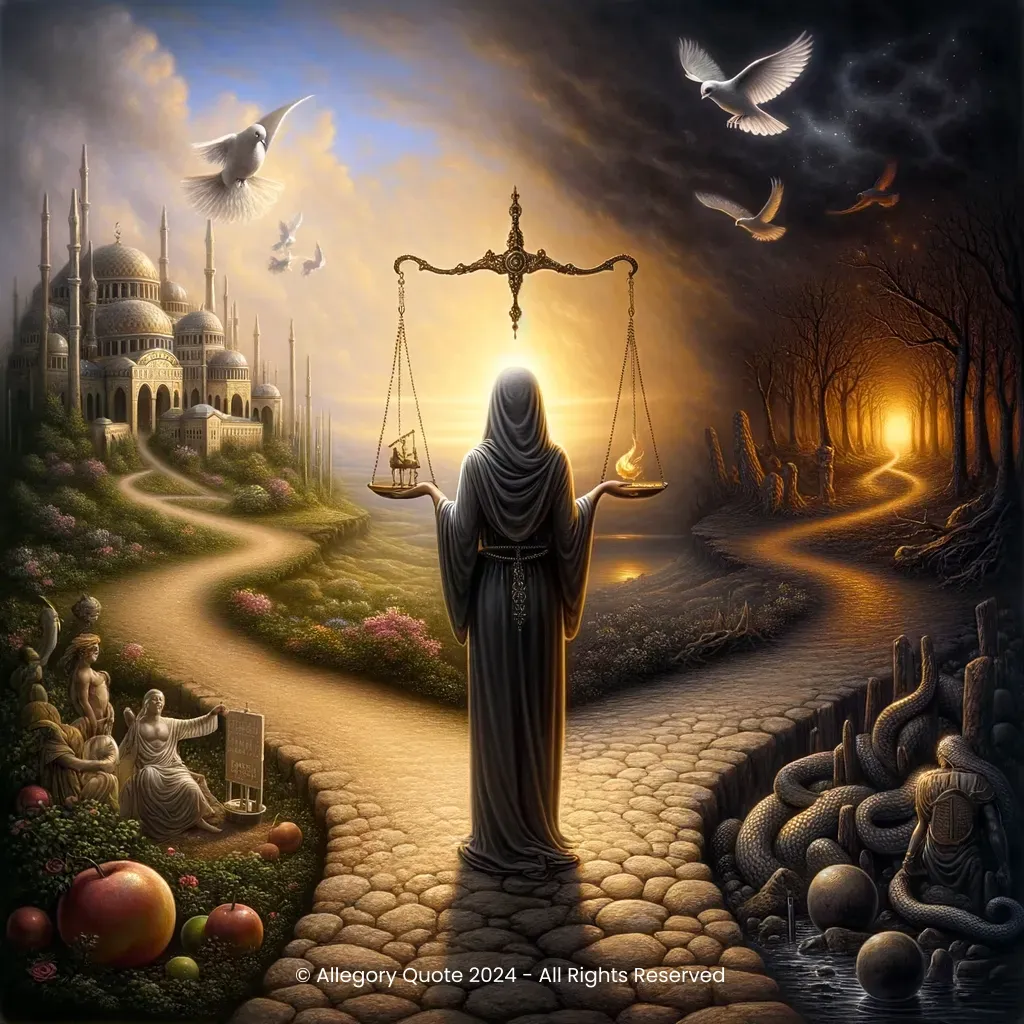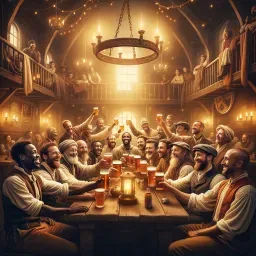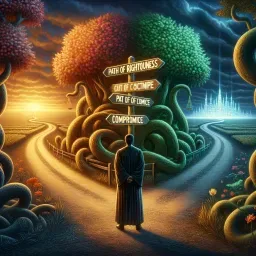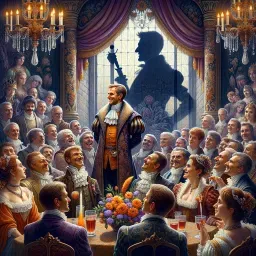To do a great right do a little wrong

0
0
0
0
- Meaning
- This phrase delves into the moral dilemma of achieving a beneficial outcome through morally questionable means. It suggests that, in certain situations, committing a minor wrong could be justified if it leads to a significant right. This concept challenges the absolutism of moral codes and questions whether the ends justify the means.
- Allegory
- The figure at the crossroads represents an individual facing a moral decision. The paths symbolize the choices between achieving a greater good and moral compromise. The glowing city represents the desired positive outcome, while the dark forest indicates the ethical challenges. The balance scale signifies the weighing of options, and the dove and serpent illustrate the peaceful intentions versus the temptations of wrongdoing. The light-to-dark background transition emphasizes the ethical complexity and the struggle between right and wrong.
- Applicability
- In personal life, this phrase might apply when facing ethical dilemmas where strict adherence to rules could lead to negative outcomes. It encourages reflection on whether bending rules slightly could result in a greater good. For instance, one might consider lying to protect someone's feelings or breaking a minor law to prevent greater harm.
- Impact
- This phrase has sparked significant philosophical discussions regarding ethics and morality. It has influenced debates in legal, political, and personal contexts, often cited in discussions about the justification of ethically questionable actions for the greater good.
- Historical Context
- "The Merchant of Venice" was written by William Shakespeare between 1596 and 1599. The Renaissance was a time of significant social, political, and economic changes, with questions of morality and ethics being central themes in many works of literature.
- Criticisms
- The primary criticism of this phrase is that it could be used to justify immoral or unethical actions under the guise of achieving a greater good. Critics argue that it risks undermining moral integrity and promoting a slippery slope where progressively larger wrongs are justified by the desired outcomes.
- Variations
- Variations of this phrase include different interpretations across cultures that weigh the relationship between means and ends differently. Some cultures strongly oppose any form of wrongdoing, regardless of the intended outcome, reflecting diverse ethical perspectives.
-

To weep is to make less the depth of grief.
-

I am a man more sinned against than sinning.
-

know what were good to do, chapels had been churches, and poor men's cottages princes' palaces.
-

I must be cruel, only to be kind.
-

If to do were as easy as to.
-

There is nothing either good or bad but thinking makes it so.
-

Come, gentlemen, I hope we shall drink down all unkindness.
-

To do a great right, do a little wrong.
-

There's daggers in men's smiles.
-

When sorrows come, they come not single spies, but in battalions.
No Comments